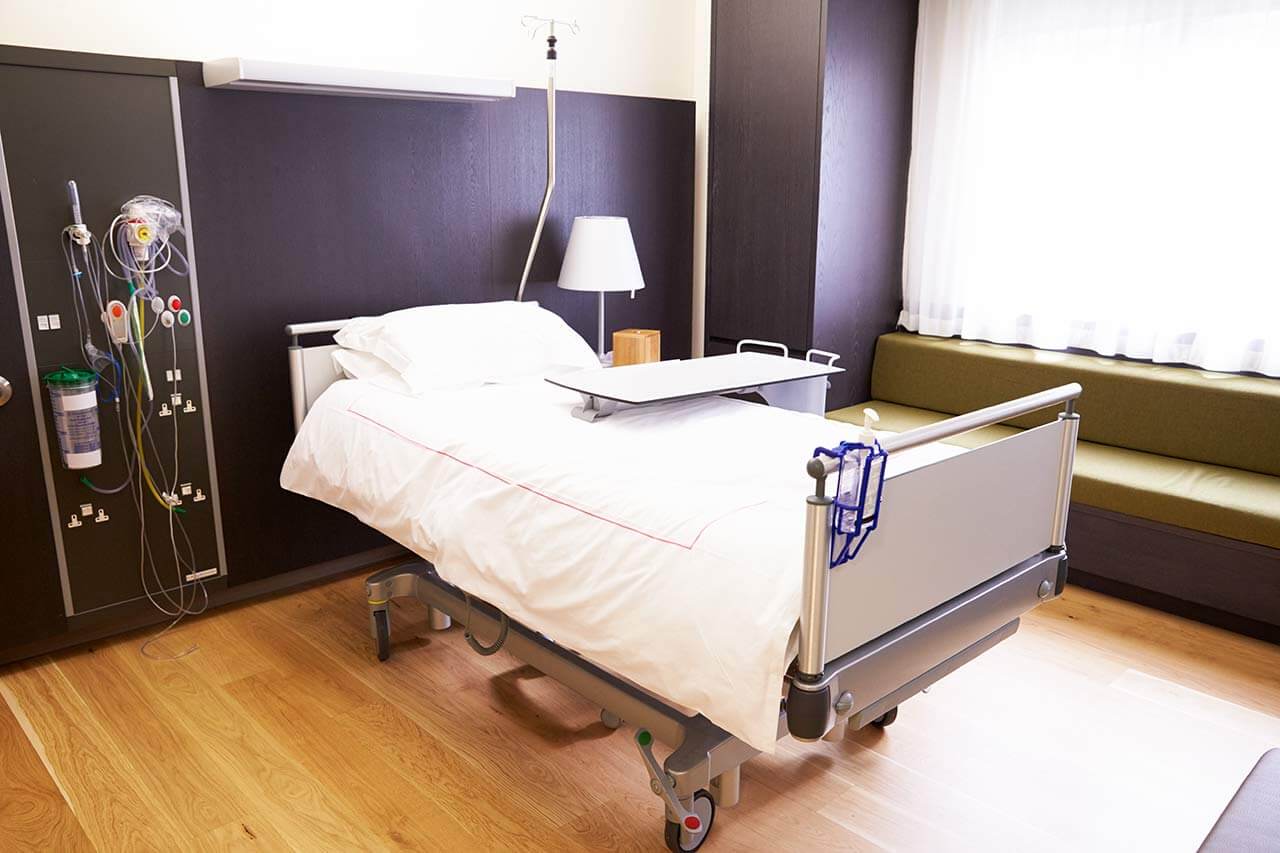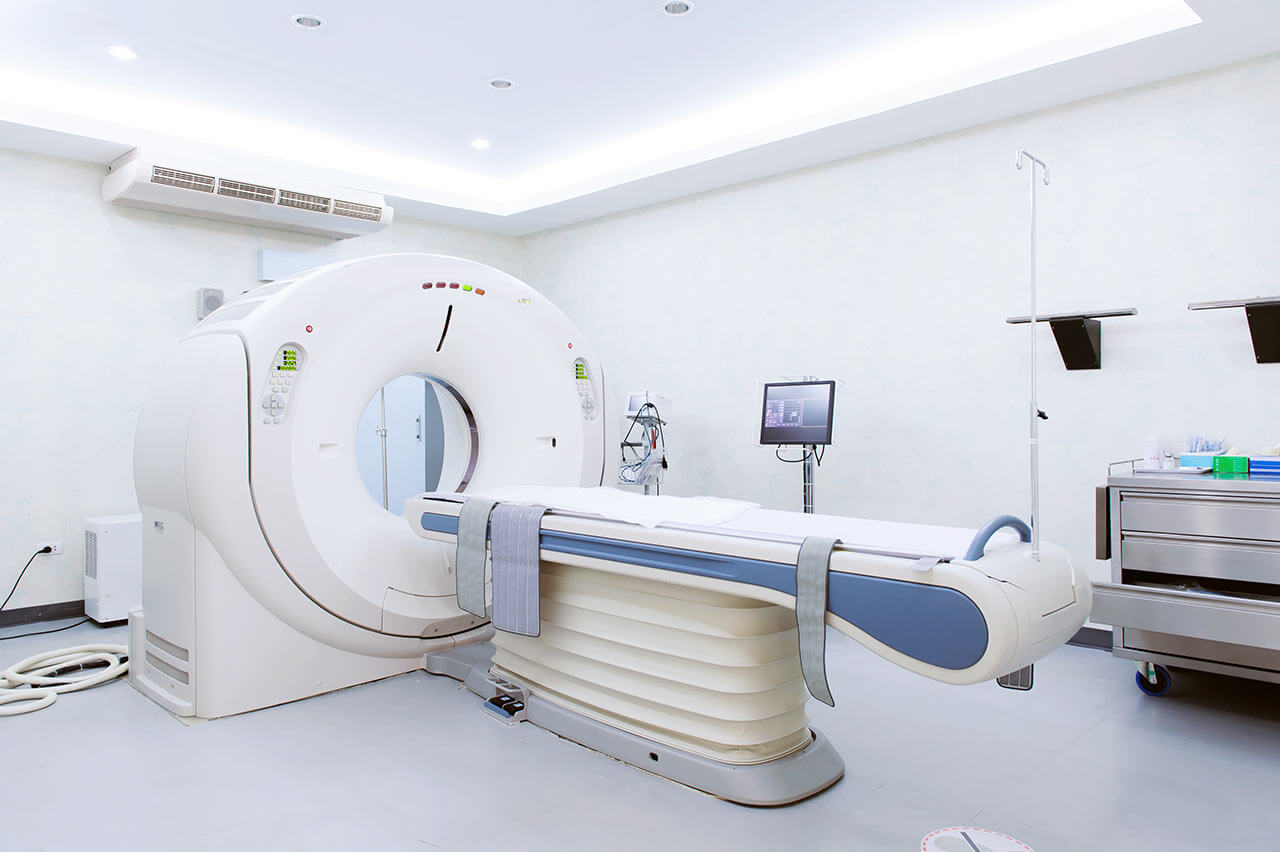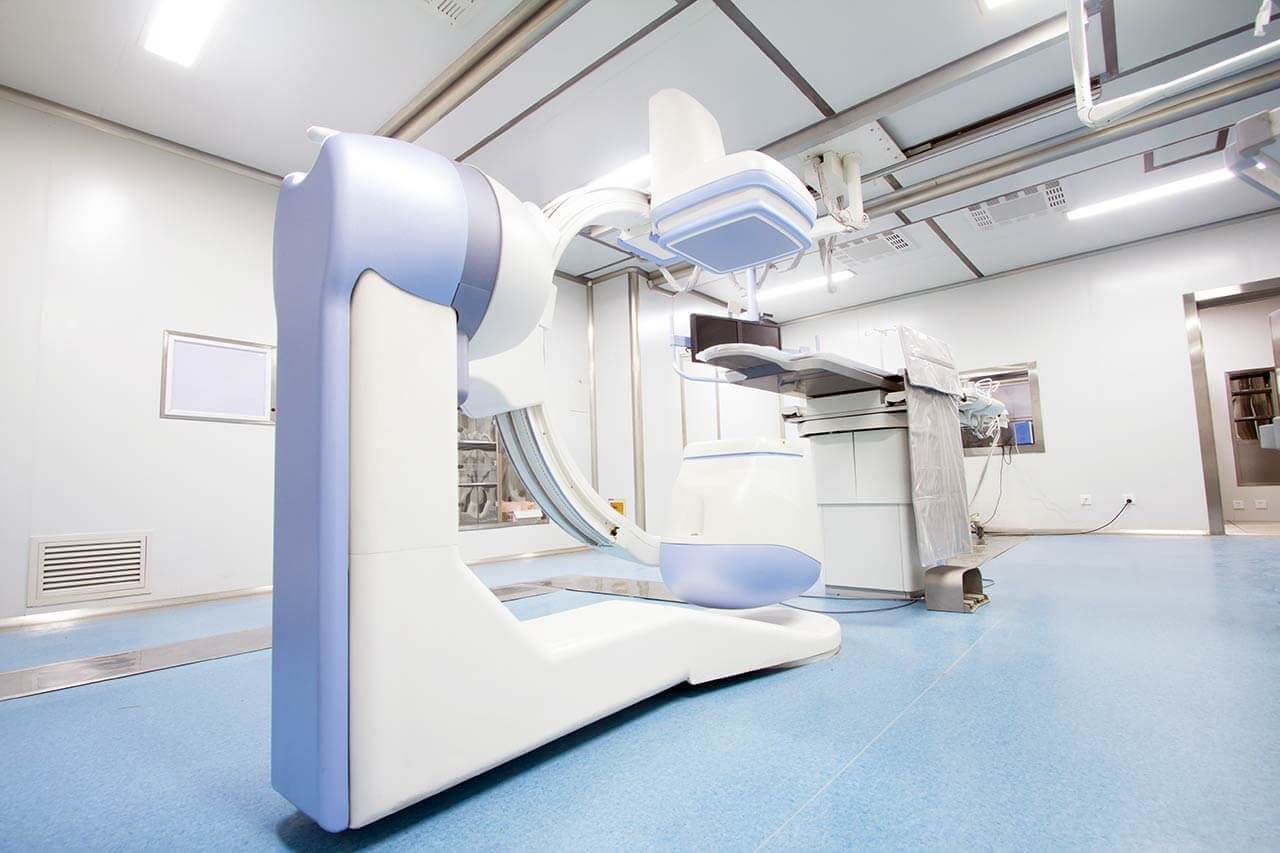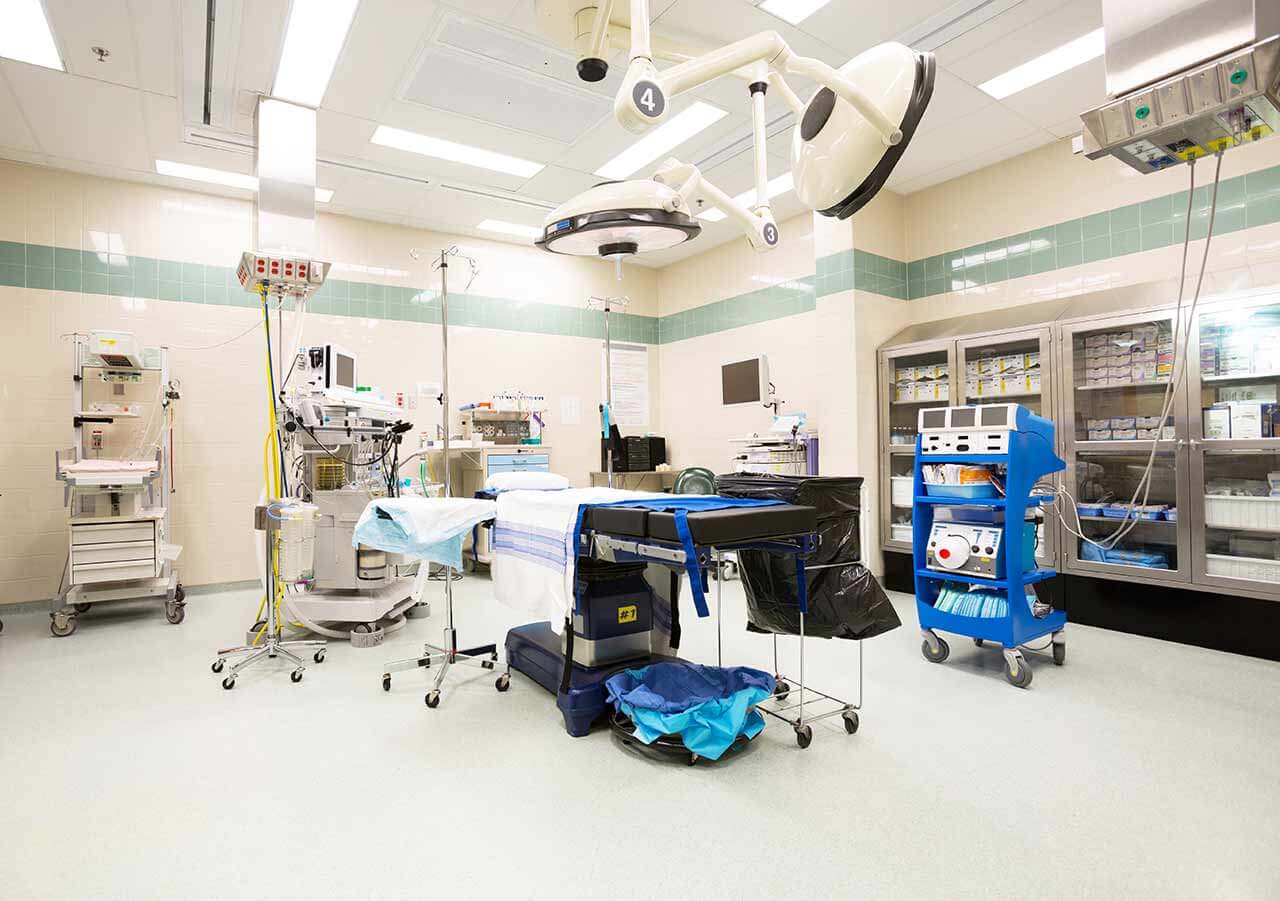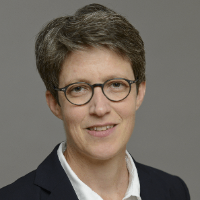
The program includes:
- Initial presentation at the clinic
- clinical history taking
- review of medical records
- general clinical examination
- extensive laboratory tests:
- complete blood count
- biochemical blood test
- inflammation markers (CRP, ESR)
- blood coagulation analysis (aPTT, PT, INR)
- serological analysis (IgA, IgM, IgG to V.zoster, PCR)
- nursing services
- services of all leading experts
- explanation of individual treatment plan
Required documents
- Medical records
Service
You may also book:
 BookingHealth Price from:
BookingHealth Price from:
About the department
The Department of Infectology and Rheumatology at the Charite University Hospital Berlin provides a full range of preventive, diagnostic, and therapeutic services in its areas of specialization. The clinical activities of the department's team of infectologists focus on the medical care of patients with HIV, tuberculosis, hepatitis, meningitis, endocarditis, gastroenteritis, sexually transmitted diseases, tropical diseases, and immunodeficiency disorders. The department has modern isolation wards with special ventilation systems for patient comfort. The medical facility has successfully passed certification according to the standards of the German Society of Infectious Diseases (DGI), which indicates the excellent quality of medical services and high rates of treatment effectiveness. The department also provides qualified medical care for patients with rheumatic diseases. The focus is on patients with ankylosing spondylitis and other types of spondyloarthritis. The department also has extensive experience in the treatment of rheumatoid arthritis, psoriatic arthritis, systemic lupus erythematosus, vasculitis, systemic scleroderma, and other rheumatic conditions. In most cases, patients are prescribed outpatient treatment without mandatory hospitalization. Following a comprehensive diagnostic examination, an individualized treatment plan is developed, which is based on using various groups of drugs combined with physiotherapy, massage, and therapeutic exercises. The Head Physician is Prof. Dr. med. Britta Siegmund.
The department treats more than 1,000 patients a year with various infectious diseases. Specialists provide evaluation and treatment of HIV, tuberculosis, hepatitis, meningitis, endocarditis, gastroenteritis, sexually transmitted infections (syphilis, gonorrhea, chlamydia, genital herpes, etc.), tropical infections (malaria, schistosomiasis, leishmaniasis, etc.), and immunodeficiency disorders, including in patients with autoimmune diseases, HIV, and oncological diseases. Depending on the diagnosis, an optimal set of drugs is selected to combat the infectious agent, relieve symptoms, and prevent complications. In the case of bacterial infections, antibiotics are the main drug in the arsenal of the department's doctors, antiviral drugs are used to combat viruses, antimycotics are the basis of treatment for fungal infections, and antiparasitic drugs are prescribed for parasitic infections. Basic treatment is accompanied by symptomatic therapy: antipyretic, analgesic, anti-inflammatory, and other drugs are prescribed. The department also has experience in treating patients with severe nosocomial infections and sepsis, which is a life-threatening condition.
The medical facility is certified by the German Society of Infectious Diseases (DGI) and occupies a leading position in the global medical arena among clinics of this specialty. In addition to clinical practice, the physicians of the department are actively engaged in scientific research. Many successful scientific projects have been implemented here, thanks to which innovative methods of treatment of infectious diseases have entered into practice.
Another key focus of the department's medical team is rheumatology. The department's key specialization is the treatment of spondyloarthropathies: ankylosing spondylitis (Bechterew's disease) and axial spondyloarthritis. The department also admits patients with psoriatic arthritis, reactive arthritis, arthritis associated with Crohn's disease and ulcerative colitis, systemic lupus erythematosus, vasculitis, systemic scleroderma, dermatomyositis, and rare rheumatic diseases. The department has modern laboratories and diagnostic facilities where patients can undergo blood tests, HLA B-27 gene carrier testing, capillary microscopy, polarized light microscopy, joint ultrasound, etc. The treatment plan for each patient is individualized, taking into account the patient's diagnosis. The specialists of the department prefer a comprehensive approach: the treatment combines drug therapy with disease-modifying antirheumatic drugs (DMARDs), biological drugs, nonsteroidal anti-inflammatory drugs, corticosteroids and other drugs, physiotherapy procedures, therapeutic exercises, and dietary therapy. In most cases, patients are treated on an outpatient basis, but in complex cases, the department's physicians may recommend an inpatient stay. The facility has 20 beds for patients with rheumatic diseases.
The range of medical services provided by the department includes the following:
- Infectology
- Diagnostics and treatment of HIV
- Diagnostics and treatment of tuberculosis
- Diagnostics and treatment of hepatitis
- Diagnostics and treatment of meningitis
- Diagnostics and treatment of endocarditis
- Diagnostics and treatment of gastroenteritis
- Diagnostics and treatment of sexually transmitted infections: syphilis, gonorrhea, chlamydia, genital herpes, and others
- Diagnostics and treatment of tropical infections: malaria, schistosomiasis, leishmaniasis, and others
- Diagnostics and treatment of immunodeficiency disorders, including in patients with autoimmune diseases, HIV, and oncological diseases
- Diagnostics and treatment of severe nosocomial infections
- Diagnostics and treatment of sepsis
- Rheumatology
- Diagnostics and treatment of spondyloarthropathies: ankylosing spondylitis (Bechterew's disease) and axial spondyloarthritis
- Diagnostics and treatment of psoriatic arthritis
- Diagnostics and treatment of reactive arthritis
- Diagnostics and treatment of arthritis associated with Crohn's disease and ulcerative colitis
- Diagnostics and treatment of systemic lupus erythematosus
- Diagnostics and treatment of vasculitis
- Diagnostics and treatment of systemic scleroderma
- Diagnostics and treatment of dermatomyositis
- Diagnostics and treatment of rare rheumatic diseases
- Diagnostics and treatment of other diseases
The department offers the following treatment modalities:
- Treatment of infectious diseases
- Therapy with antibiotics, antiviral, antifungal, and antiparasitic drugs – depending on the type of infection and its pathogen
- Symptomatic therapy
- Treatment of rheumatic diseases
- Drug therapy with disease-modifying drugs (DMARDs), biologics, nonsteroidal anti-inflammatory drugs, corticosteroids, and other medicines
- Physiotherapy
- Exercise therapy
- Diet therapy
- Other treatment methods
Curriculum vitae
Higher Education, Postgraduate Training, and Professional Career
- 2023 Additional qualification in Immunology, Berlin Medical Association.
- Since 2016 Medical Director, Center 13 "Gastroenterology, Nephrology, and Metabolic Disorders", Charite University Hospital Berlin.
- Since 2013 Professorship for Internal Medicine and Head Physician, Department of Infectology and Rheumatology, Charite University Hospital Berlin.
- 2012 - 2013 Acting Head Physician, Department of Infectology and Rheumatology, Charite University Hospital Berlin.
- 2012 - 2013 Heisenberg W2 Professorship for Translational Gastroenterology – Inflammatory Bowel Disease, Charite University Hospital Berlin.
- 2011 Certified Gastroenterologist Oncologist, certification by the German Society for Digestive and Metabolic Diseases (DGVS).
- 2009 - 2011 Managing Senior Physician, Department of Infectology and Rheumatology, Charite University Hospital Berlin.
- 2009 Specialization in Gastroenterology.
- 2007 ‐ 2012 Senior Physician, Department of Infectology and Rheumatology, Charite University Hospital Berlin.
- 2007 Specialization in Internal Medicine.
- 2007 Board certification in Internal Medicine, Charite University Hospital Berlin.
- 2006 Habilitation, Charite University Hospital Berlin.
- 2002 - 2007 Residency, Department of Infectology and Rheumatology, Charite University Hospital Berlin.
- 2000 - 2002 Postdoctoral Fellowship, Department of Infectology, University of Colorado, Boulder, USA.
- 1998 - 2000 Intern and Research Fellow, Department of Internal Medicine, University Hospital of the Ludwig Maximilian University of Munich.
- 1998 Thesis defense in Clinical Pharmacology, Ludwig Maximilian University of Munich.
- 1992 - 1998 Medical studies at the Ludwig Maximilian University of Munich and Harvard Medical School, Boston.
Positions in Scientific Societies and Organizations
- 2023 - 2025 President, European Crohn's and Colitis Organisation (ECCO).
- Since 2022 Advisory Board Member, German Society for Digestive and Metabolic Diseases (DGVS).
- 2021 - 2022 Acting Head of BIH Charite Clinician Scientist Program, Berlin Institute of Health (BIH), Charite University Hospital Berlin.
- 2020 - 2023 President, European Crohn's and Colitis Organisation (ECCO).
- Since 2019 Vice President, German Research Foundation (DFG).
- Since 2019 Chairman of the Standing Senate Committee on Basic Issues in Clinical Research (SGKF), German Research Foundation (DFG).
- 2017 ‐ 2019 Member and Representative for Conservative Medicine in the Senate and Main Committee of the German Research Foundation (DFG).
- 2017 Chairman of the Society for Gastroenterology and Hepatology in Berlin and Brandenburg.
- 2017 - 2022 Board Member, German Research Foundation (DFG).
- 2016 - 2021 Supervisory Board Member, Berlin Institute of Health (BIH).
- 2016 - 2017 Medical Review Board Member, German Research Foundation (DFG).
- 2015 - 2016 Advisory Board Member, German Society for Digestive and Metabolic Diseases (DGVS).
- Since 2014 Rapporteurs' Committee Member of the German Crohn's and Colitis Association (DCCV).
- Since 2014 Supervisory Board Member of the Faculty of Medicine, University of Muenster.
- 2013 - 2017 National Representative, European Crohn's and Colitis Organisation (ECCO).
- 2013 - 2016 Scientific Committee Member, European Crohn's and Colitis Organisation (ECCO).
- Since 2012 Board Member, Network of Centers of Excellence for Bowel Diseases, Kiel.
- Since 2009 Founding Member and Member of the Speakers' Committee of the German IBD Study Group.
- Since 2009 Employee of the International Research School for Infectious Diseases and Immunology of the Max Planck Society in Berlin.
- 2009 Chairman of the German Working Group for Chronic Inflammatory Bowel Disease (DACED), German Society for Digestive and Metabolic Diseases (DGVS).
Prizes, Awards, Honors, and Honorary Memberships
- Since 2020 Member of the Walter Siegenthaler Society, Stuttgart.
- Since 2019 Member of the Berlin-Brandenburg Academy of Sciences.
- Since 2017 Member of the National Academy of Sciences Leopoldina.
- 2006 Rising Star Award in Gastroenterology, United European Gastroenterology (UEG).
- 2002 - 2008 Head of the Emmy Noether Junior Research Group "Assessment of a new function of leptin: investigation of the role of leptin in experimental mouse models of ulcerative colitis", German Research Foundation (DFG).
- 2000 - 2002 Postdoctoral Fellowship from the German Research Foundation (DFG).
- 1997 Award from the Harvard-Munich Alliance for Medical Education, Harvard Medical School, Boston, USA, and Ludwig Maximilian University of Munich, Germany.
Photo of the doctor: (c) Charité – Universitätsmedizin Berlin
About hospital
According to the reputable Focus magazine, the Charite University Hospital Berlin ranks 1st among the best healthcare facilities in Germany!
The hospital is one of the largest and leading university medical complexes in Europe, and also consistently holds leading positions in the international medical arena. The Charite operates on the basis of the Faculty of Medicine of the Free University of Berlin and the Humboldt University of Berlin. Patients are offered modern diagnostics and treatment with the very latest methods, many of which were developed by professors and scientists of the medical complex. More than half of all German Nobel Prize winners in medicine and physiology, such as Emil von Behring, Robert Koch, and Paul Ehrlich, studied and worked at the Charite University Hospital Berlin. The medical complex includes more than 100 specialized departments and institutes, which helps to ensure that patients receive care in all existing medical specialties. The hospital has exceptional experience in treating complex clinical cases.
Each year, the hospital treats more than 137,800 inpatients and more than 787,700 outpatients. The hospital has a bed capacity of 3,293 beds. A huge medical team consisting of 5,670 scientists and doctors and more than 6,000 nurses work for the benefit of the patients. The main task of all specialists of the medical facility is to restore the patient's health or save his life in critical cases. The hospital has a friendly atmosphere where every patient feels care, respect and empathy.
The Charite University Hospital Berlin is generously funded by the German government, which is why it offers patients the latest generation of excellent equipment and comfortable infrastructure. The Charite medical complex is equipped with da Vinci robotic surgery systems, laser technologies, equipment for endovascular catheter-based interventions, neuronavigation devices, intraoperative monitoring systems, equipment for proton therapy available only in the most advanced medical centers in the world, and many other technologies. All these resources, combined with the experience and professional skills of the hospital's doctors, are the key to providing the most effective and safe treatment in accordance with the highest international medical standards.
The hospital is recognized with a huge number of quality certificates, including DIN EN ISO 9001:2015, certificates from the German Cancer Society (DKG), the German Society for General and Visceral Surgery (DGAV), the German Society for Thoracic Surgery (DGT), the German Hernia Society (DHG), and the ERAS Society.
The Charite University Hospital Berlin is a benchmark in the European healthcare system. Patients therefore receive impeccable medical service, quality care, and personalized service that puts the patient and their individual needs first.
Photo: (с) depositphotos
Accommodation in hospital
Patients rooms
The patients of the Charite University Hospital Berlin live in comfortable rooms made of modern design. Each room is equipped with an ensuite bathroom with a toilet and a shower. The standard room furnishing includes an automatically adjustable bed, a bedside table, a wardrobe for storing clothes, a table and chairs for receiving visitors, and a TV. If desired, Wi-Fi access can be provided. The hospital also offers enhanced-comfort rooms.
Meals and Menus
The patient and his accompanying person have a daily choice of three menus. If for any reason, you do not like the food, you will be offered an individual menu. Please inform the medical staff about your dietary preferences before the treatment.
Further details
Standard rooms include:
Religion
Religious services are available upon request.
Accompanying person
During the inpatient program, an accompanying person may stay with you in a patient room or at the hotel of your choice.
Hotel
During the outpatient program, you can live at a hotel of your choice. Managers will help you to choose the most suitable options.
The hospital offers a full range of laboratory tests (general, hormonal, tests for infections, antibodies, tumor markers, etc.), genetic tests, various modifications of ultrasound scans, CT scans, MRI and PET / CT, angiography, myelography, biopsy and other examinations. Treatment with medications, endoscopic and robotic operations, stereotaxic interventions is carried out here, modern types of radiation therapy are also used. The hospital offers patients all the necessary therapeutic techniques.
- Proton therapy
- CyberKnife treatment
- Hyperthermic intraperitoneal chemotherapy (HIPEC)
- PSMA therapy with Lutetium-177
- Joint replacement in adults and children
These are oncological diseases, benign neoplasms of the brain and spinal cord, heart valve defects, diabetes mellitus and its complications, joint diseases and other pathologies.
- Neurosurgery
- Oncology
- Plastic and reconstructive surgery
- Interventional radiology
- Proton therapy (Proton Therapy Center BerlinProtonen)
The medical team includes more than 4,225 highly qualified scientists and doctors.
